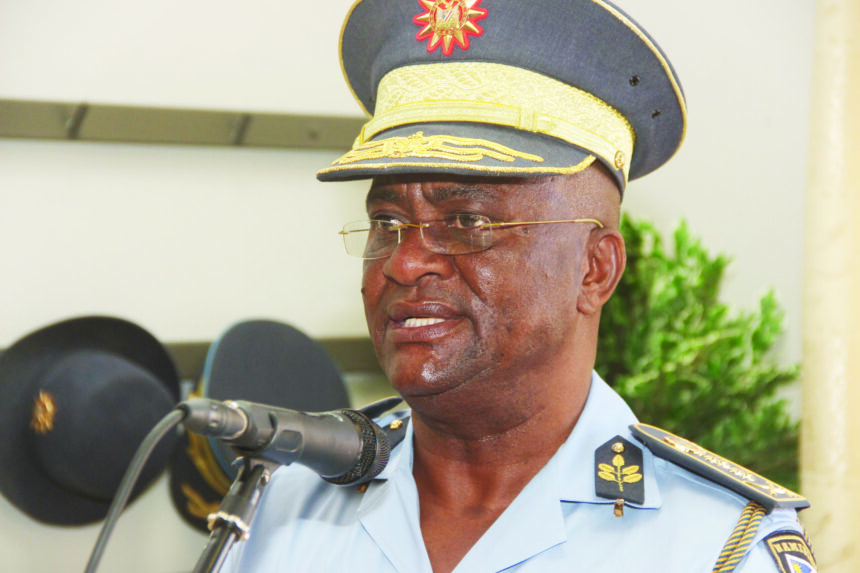A post-mortem is a process intended to help leaders to learn from past incidents.
The Electoral Commission of Namibia (ECN) held a special voting day on 13 November for the Presidential and National Assembly elections, scheduled for Wednesday.
After what happened at Van Rhyn Primary School in Windhoek polling station and elsewhere, it is imperative that the ECN as soon as possible conduct a blame-free analysis and discussion on what actually transpired.
Post-mortems are conducted shortly after incidents while the context is still fresh for all responders. Just as resolving a major incident becomes a top priority when it occurs, a complementing post-mortem is prioritised over planned work. Completing a post-mortem is the final step of the leader’s incident response process. Delaying the post-mortem postpones key learnings that may prevent such incidents from recurring.
A post-mortem typically involves blame-free analysis and discussions soon after an incident or event has taken place. It produces a detailed description of exactly what went wrong to cause the incident, along with a list of steps to take to prevent a similar incident from occurring again in the future.
An analysis of how the incident response process itself worked during the incident should also be an integral part of the discussion. Importantly, the value of post-mortems comes from helping to institutionalise a culture of continuous improvement. This way, institutions are better- prepared when another incident inevitably occurs.
Shortcomings
On 13 November, the ECN held a special voting programme to allow about 8 000 essential service workers and Namibians abroad, who cannot vote in their voting districts on Election Day, 27 November for this year’s Presidential and National Assembly elections due to essential work commitments. These voters include police officers, correctional service and defence force members, as well as seagoing personnel and voters abroad.
As such, the voting took place at 33 polling stations in the country and at all 35 diplomatic missions abroad. A total of
2 159 eligible voters registered at Namibia’s foreign missions. Based on the information provided by the security cluster and fishing institutions, an estimated 8 000 voters were expected to cast their votes.
Essentially, the Electoral Act 5 of 2014 defines specific categories of voters eligible for the special vote, and anyone else not falling in these categories will vote on 27 November.
As fate would have it, the number of police officers, correctional service staff, and the defence force members who turned out to vote was apparently higher than expected. The conundrum created ballot paper shortages, long queues, a slow voting process, and delays at some polling stations. In addition, some companies neglected to provide their employees’ details, some stations were running out of detergents to clean voters’ thumbs before they are marked, and some stations experienced data loading challenges within the first 15 minutes of opening, including unstable Internet connectivity.
Consequently, in Windhoek, major issues were reportedly experienced, with the situation turning chaotic at Van Rhyn Primary School polling station, the only one in the entire Khomas Region, where a large number of voters turned out, and where the police subsequently had to use teargas canisters to bring about order.
Value of post-mortems
In fact, the true value of post-mortems comes from helping institutionalise a positive culture around frequent and iterative improvement. This approach is commonly used in problem-solving and decision making, allowing for continual adjustment and adaptation, based on feedback and results. Post-mortems are essential, they provide a peacetime opportunity to reflect once the issue is no longer impacting users. It drives focus, instils a culture of learning, and identifies opportunities for improvement that otherwise would be lost.
Without a post-mortem, systems fail to recognise what you are doing right, where you could improve, and most importantly, how to avoid making the same mistakes in the future. Conducting effective post-mortem allows you to learn quickly from your mistakes and improve your systems and processes. A well-designed blameless post-mortem allows teams to consciously learn, serving as a way to iteratively improve your infrastructure and incident response process.
Streamlining the process
The specifics around conducting post-mortems vary from organisation to organisation. Regardless of the process, the primary purpose of post-mortem should be learning, whether it is about the systems being managed, the process being followed, or how the organisation executes its duties during a crisis.
Additional goals, including the identification and implementation of system or process improvement, may be realised, depending on a particular process followed.
In general, an effective post-mortem report tells a story of a high-level summary of what happened, the origins of failures, steps to be taken to diagnose, assess and resolve, and finally, what went well, what didn’t go well, and how to prevent the issue from happening again.
A blameless post-mortem is critical for understanding failures by trying to understand how a mistake was made, instead of who made the mistake. Blameless post-mortems give truly objective accounts of what happened by eliminating fear of punishment.
In summary, whichever terminology resonates with one’s team, the key point is that post-mortem discussions should be safe spaces in which teams can be completely honest and oriented around improving for the future instead of blaming others for the past. Post-mortems should not be neglected in cases such as what happened on Wednesday the 13th, because it is still an opportunity to review what did and did not work well in the incident response process.
The Presidential and National Assembly elections are this week, on 27 November. Conducting a blameless post-mortem analysis now and following it up with remedial steps on the shortcomings of what happened on 13 November, during the special voting day, will help mitigate the risks that lay ahead and prevent alert fatigue, going forward. The stakes are too high to overlook such a critical process.
*Maj. Gen. (Rtd) J. B Tjivikua is a crime intelligence analyst and a retired major general of the Namibian Police.


